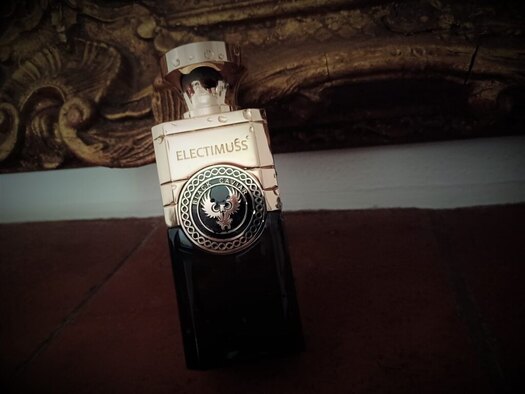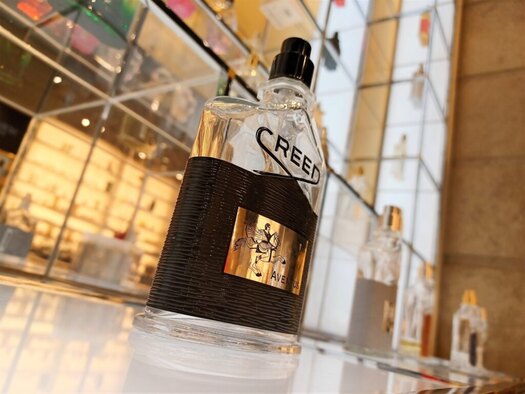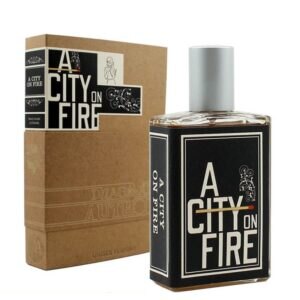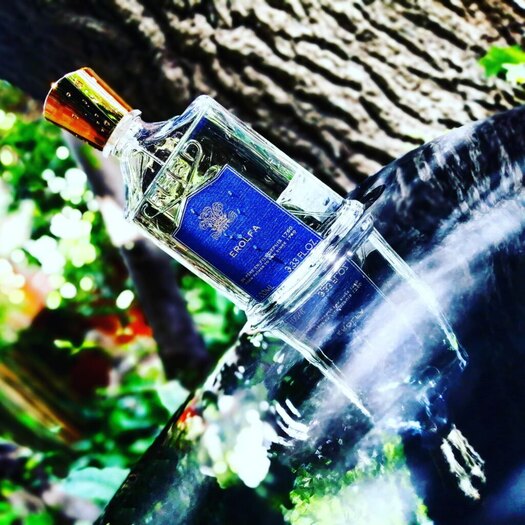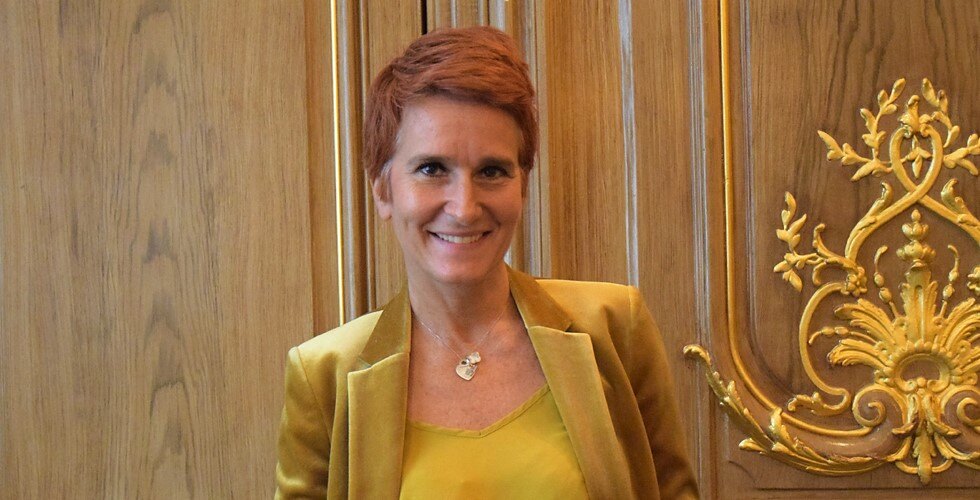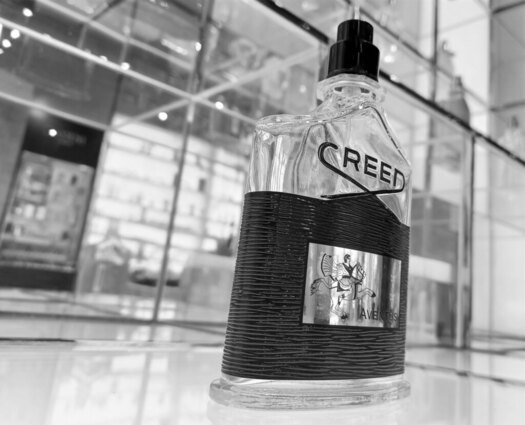If you spend a fair amount of time on Instagram, you’ll have seen the stop-scrolling majestic bottles. But as this interview with Claire Sokell Thompson, Electimuss creative and communications director, will show you, there’s more to the London-based niche brand than eye candy.
The company was founded by Luke Granger and Jason Collison in 2015, with the myths, legends and history of ancient Rome as a rich source of inspiration (Electimuss means “to choose the best” in Latin).
While the brand has been around for seven years, it’s only recently that Electimuss has really started to take off. Its growing popularity is based on high-quality juices by perfumers who know how to give their creations luxurious oomph. See my reviews of Black Caviar, Mercurial Cashmere and Vici at the end of this interview.
Claire Sokell Thompson joined the team in 2020 and her influence can be seen in the house’s more cohesive creative direction. In this interview we chat about inspiration, perfumer briefings and 2023 projects.
Let’s get the obvious question out of the way first. Those gorgeous bottles, Who designed them?
Thank you so much! We get a lot of positive feedback on them. They are a masterpiece of many hands and, in fact, we’re working on a new evolution at the moment.
The brand launched in 2015 and has really made an impression over the last few years. It’s not as easy as it looks, though, so tell us about a specific problem Electimuss had to overcome.
In terms of our brand, we’re so lucky we’ve had so much support and passion from our customer base and retailers. The most difficult issues for us, like many of our compatriot brands, have been Covid and Brexit related in terms of supply, logistics and distribution.
Did you know Jason Collison and Luke Granger before you joined the team in 2020?
No, I didn’t. I met them before lockdown early 2020. They were aware of my work creating and launching Thameen and brought me onto the team to steer the brand into a new phase of growth.
“They were aware of my work creating and launching Thameen and brought me onto the team to steer the brand into a new phase of growth.”
Who does what in the scheme of things? And what are your backgrounds?
We are a close hands-on team. Luke and Jason were previously Boadicea The Victorious, so our collective experience is niche luxury fragrance.
Luke is the founder and runs logistics, warehouse and supply side of the business and we work together on product innovation. Jason’s business development and sales, and my areas are creative direction, perfume and new product development, communications and digital.

Ancient Rome is rich with inspiration. Have you become a bit of a history/mythology buff in the process?
Totally! I must confess that mythology was already one of my passions. I love exploring Greek, Nordic, Roman and Chinese mythology and seeing similar narratives and moralities pop up across different cultures throughout the centuries.
There is so much material to enjoy. Stephen Fry’s Mythos is an epic and very accessible introduction to the entirety of Greek mythology, on which most of Roman mythology was based. But there are interesting contemporary takes on the classics, like the incredibly talented Madeline Miller and Kamila Shamsie, plus great podcasts like Myths and Legends.
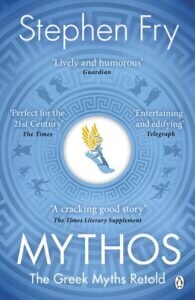
However, it isn’t just mythology, it’s also Roman history that’s so fascinating. We draw inspiration from both.
One of the things that separates Electimuss from an increasingly crowded niche sector is that all the scents are pure parfum concentration…
Yes, we’re unbending on that. Our name is a Latin portmanteau meaning “to choose the best” and that tenet runs through everything we do: the perfumers we work with, the ingredients and the concentrations.
We’re aware that luxury fragrance comes at a price, but our mission is to deliver the highest quality performance for the price. The budget on our perfumes far exceeds other brands in the same price band and with very high inclusion. So although our perfumes are not cheap, one spray goes a long way.
How did the collaborations with master perfumer Christian Provenzano (Pomona Vitalis, Persephone’s Patchouli, Capua) come about?
We’ve worked with Christian on eight of our perfumes now.
My idea for the Consort Collection was a collaborative creative approach. I wanted to work with one central note and explore it through two different lenses on a shared story.
So the story of Pluto, king of the underworld, and Persephone, daughter of the goddess of nature, was explored with patchouli representing the confluence of the underworld and earth’s surface. We worked with Christian Provenzano (pictured, below) and Kèvin Mathys for this new pair of perfumes.
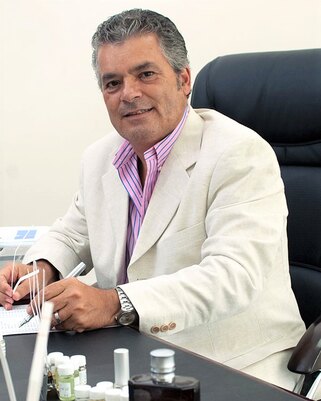
Black Caviar from the Nero Collection is one of my personal favourites and very much captures what the brand is about…
It is one of our first perfumes and one of our bestsellers. It typifies what Electimuss is good at: creating original perfumes with gravitas. Our ambition is to create modern masterpieces that will become iconic classics of the future.
Talk us through a typical briefing of one of your selected perfumers.
It usually starts with a muse. For example, currently my muse is Venus for the next fragrance, so I explore all different aspects of Venus, from her different depictions through mythology to the way she has been represented in literature, art, music and more.

From there I either develop a conceptual brief around a specific ingredient (like the two patchouli perfumes launched earlier this year) or a map of scent references I’m interested in exploring, inspired by our muse.
The brief can include paintings, music, colours, stories and ingredient references. But we never want to be prescriptive – the key is creating a concept and an anchor for creative exploration.
“We never want to be prescriptive – the key is creating a concept and an anchor for creative exploration.”
Each perfumer we work with explores the brief in different ways: some like to talk, others to be more straight to creation to express their response. We then assess and evolve the fragrances together.
From the website, I see you’re about to launch a new collection. Tell us more about that please.
Our new launch is Travel Atomisers. We are working some of our best-selling perfumes into travel size with a stunning purple and gold atomiser.
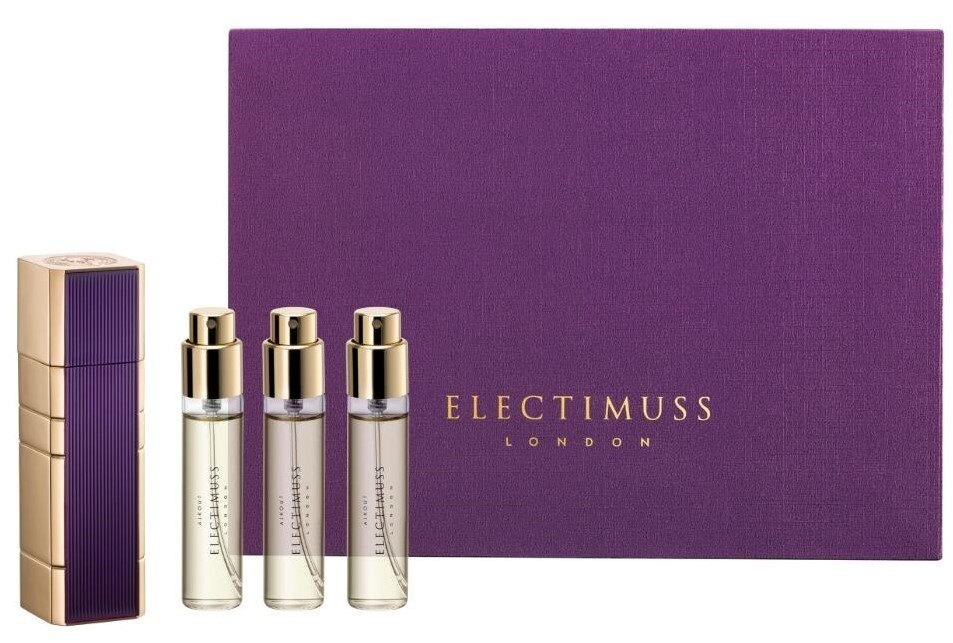
And we are due to launch Hair Mist early ’23. With the launch of three new beautiful perfumes next year, we have been busy creating. We’re so excited about these scents.
With the brand’s luxury credentials, there’s increasing pressure to be eco-friendly too. What progress is Electimuss making on that front?
Good question and on our minds constantly. It’s tough to make real change in this business. Sustainability runs from back to front end and we are making progress. Some solutions we look at seem sustainable, such as refillables, but when you pull them apart, they actually aren’t any more sustainable. And we aren’t interested in sustainable messaging, our focus is affecting real change.
Our ingredients are sustainable and vegan. We offset on delivery and logistics. On the packaging side, we are currently working on innovating the interiors of our boxes, but with luxury products keeping the product safe and pristine is paramount to customer satisfaction, so it takes innovation to find the solution.
3 ELECTIMUSS FRAGRANCES TO TRY NOW
All these perfumes from the Nero Collection capture what Electimuss is about in different and delightful ways.
ELECTIMUSS BLACK CAVIAR PARFUM (MARCO GENOVESE)
To call this 2019 release “intriguing” would be a massive understatement.
Taking its inspiration from the decadence of emperors Severus and Nero, it opens with the saltiness of caviar. The savoury gourmand note is made even more appealing with a chic coolness, as if on ice. A note of animalic oud adds to the richness. There’s aromatics aplenty from notes of rosemary, sage and lavender, with the latter standing out with its fresh and spicy, almost aniseed-y facets. The woodiness of vetiver, patchouli and oakmoss is maximised in the drydown.
From start to finish, it’s delicious stuff.
ELECTIMUSS MERCURIAL CASHMERE PARFUM (SOFIA BARDELLI)
An apt name for a fragrance that changes from the light and bright to the sensual and deep.
This 2021 release starts out in fresh and spicy mode with notes of Madagascan pink pepper, cardamom and Italian bergamot. The powder of iris and violet is paired with the white floral intensity of tuberose and the slight saltiness of a note of ambergris. And what about the cashmere? In perfumery, this refers to the synthetic Cashmeran (also known as blonde woods). It’s at its musky-woody best here. There’s more sweetness (just enough) from notes of caramel, vanilla and tonka bean. I don’t pick up much of the listed oud note, but that’s just me being fussy.
Named for the Roman god Mercury, it might imply a rapid change in mood from charming to nasty, but no worries, this beauty is definitely about the former.
ELECTIMUSS VICI LEATHER PARFUM (JULIEN RASQUINET)
Julien Rasquinet is admired for his work for niche brands such as Amouage, Zoologist and Masque Milano. His first fragrance for Electimuss, a 2022 release, takes its cue from the Latin phrase “veni, vidi, vici” (“I came, I saw, I conquered”).
An elegantly cosy scene is set with the spicy and powdery warmth of cinnamon. There are subtle touches of wormwood and pink pepper in the background. A leather accord-tuberose combo gives the composition a subtly sweet animalic quality without the white floral dominating things, while the musky amber accord in the drydown maintains the comfy ambience.
*Electimuss samples, Mercurial Cashmere and Black Caviar kindly gifted to me by the brand.








